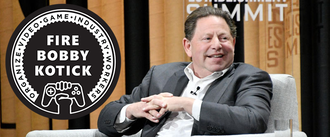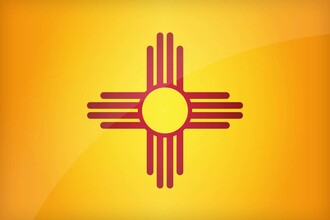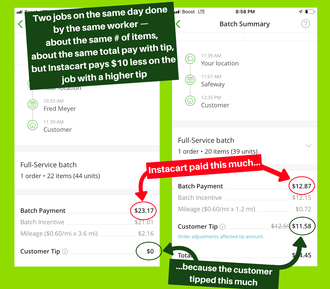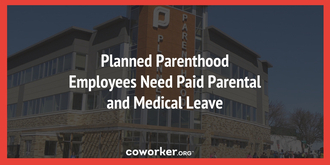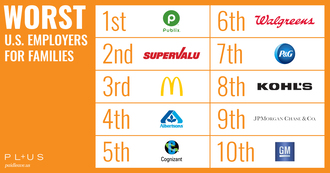-
Fire Activision CEO Bobby Kotick for pocketing millions while laying off 800 workersThe 800 workers who helped with community management, marketing games, running eSports, legal, and so much more are all far more valuable than the CEO. When making the decision to cut someone from Activision we'd choose to #FireBobbyKotick every time. Bobby Kotick has been raking in $30 million dollars a year as Activision CEO, that massive income doesn't come from nowhere. It comes from the labor of his employees. Kotick's wealth is built from the stolen wages of his workers. [1] Activision, under Kotick's leadership, gave a $15 million dollar bonus to the CFO *just for changing his job title* then they have the gall to turn around and lay off 800 workers just days later? [2] It's disgusting to hear Kotick boasting about record revenue for the company then announcing an 8% staffing cut in the next breath. Kotick was especially proud to announce the 9% bump to stockholder values. That 9% comes from our labor. [3] Please sign this petition in solidarity and send a message to Activision Blizzard's c-suite that we won't let their greed ruin the games we love and uproot the lives of workers anymore! Sources: 1. https://kotaku.com/activisions-ceo-made-28-6-million-last-year-300-times-1825715966 2. https://www.bloomberg.com/news/articles/2019-01-04/activision-gives-15-million-sweetener-to-new-cfo-dennis-durkin 3. https://waypoint.vice.com/en_us/article/yw83kg/activision-blizzard-reports-record-revenue-as-they-fuck-over-800-employees11,475 of 15,000 SignaturesCreated by Game Workers

-
Provide certainty for EU and non-EU staff and cover all employment-related immigration costsAs a global university, Birmingham UCU believes the University of Birmingham should be doing more to support EU and non-EU staff. Providing financial support to current and prospective EU and non-EU staff will reduce the financial burden and worry they face and ensure the University of Birmingham remains an attractive and welcoming global institution.22 of 100 SignaturesCreated by Francis Clarke
-
Don't Let Workers Get Priced Out of FerndaleA recent measure passed by City Council will double the rates of downtown parking. Workers who live paycheck to paycheck will have to seek better paying jobs or they will be forced to park further into the neighborhoods. It is unsafe for workers to be walking through unlit neighborhoods in the middle of the night; it is unsustainable for business owners to have high rates of staff turnover due to doubled parking expenses for workers; it is unfair for residents to have to compete for street parking with displaced workers. A $0.75 wage increase would offset these new parking fees and income taxes for downtown workers and help sustain our community.49 of 100 SignaturesCreated by Radnik Restoranu
-
Give New Mexico Restaurant Workers a PaycheckThe restaurant industry is one of New Mexico’s largest and fastest growing industries. Employing close to a half of a million people, our industry has statistically the lowest wages in the state. As someone who has worked in the restaurant industry for 15 years, I know how hard it is get by in this industry, and how helpful it will be if we pass one fair wage. According to New Mexico’s Department of Workforce Solutions – the median income earning of someone in our industry is around $20,000 a year. That needs to change. States like Nevada, Minnesota, California, Washington, Montana, Oregon, and even Alaska have laws that make sure everyone, including front-of-house staff, are paid at least the minimum wage by their employer. Every New Mexican deserves a paycheck. New Mexico legislature, be on the right side of history and pass one fair wage!86 of 100 SignaturesCreated by Irena Paz
-
Protect restaurant workers from tip theft.When a customer pays the tip with a credit card, the money doesn’t always go to the server. Many restaurants allow customers to pay the bill and the tip with their credit card instead of cash. Credit card companies charge separate fees to process both of these transactions. Because the tip has to be processed through the restaurant, the restaurant can legally take a percentage of each tip to pay the transaction fee. In short, restaurants are taking the tip you gave to the employee to pay a business expense. In many states, servers are only guaranteed $2.13 per hour. The rest of our pay comes directly from guests in the form of the tip. This is an incredibly unstable way to make a living because it’s only social custom that obliges a patron to leave a tip. Regardless of how hard we work or how much the bill is, only the customer’s conscience determines how much we are paid. Meanwhile, if a guest refuses to pay the bill, they could be prosecuted. It is shameful that an industry that doesn’t have to pay its workers a living wage would also steal its workers’ hard-earned money.3,854 of 4,000 SignaturesCreated by Janice Shiffler
-
All stores should close and pay employees impacted by extreme weatherWe need a fair workweek so that when shifts get cancelled last minute we still have hours we can count on. That’s why we’re calling on some of the wealthiest corporations in our country like Starbucks, Walmart, Amazon and Target to provide disaster relief pay for employees who have had to miss work this week due to the cold. Our bills don’t stop just because it gets cold!3,257 of 4,000 SignaturesCreated by Amber Kofman

-
Recognize MLK Day as a Holiday for EmployeesMLK Day celebrates the life and achievements of Dr. Martin Luther King Jr., an influential American civil rights leader. He is most well-known for his campaigns to end racial segregation on public transport and for racial equality in the United States for civil, voters, and workers rights.7 of 100 SignaturesCreated by Midilab Law
-
It's time to give TSA agents a raise!I’m a career federal employee who lives in Washington, DC. Despite working without pay during the recent shutdown, I was fortunate enough to have saved enough to cover this unexpected gap in my income. Others – including many TSA employees – were not so lucky. As part of my job, I’ve had to travel during the shutdown. Recently, I arrived at the airport much earlier than usual because I was worried about long security lines. Much to my surprise, there were no lines. The TSA employees were pleasant and professional. They were doing their jobs as they do every day, looking out for us, even when our government isn’t looking out for them. We would never tolerate a major private sector employer forcing their employees to work without pay for weeks and months at a time, and yet, as federal employees, this is a new normal. It’s time to adjust federal pay scales to ensure that our hardworking federal employees at the lowest ends of the pay scale are not tossed into financial jeopardy with every shutdown. Everyone who works for the federal government should be able to accumulate savings. Join me in calling on decision-makers in government to act now by giving a raise to TSA workers and other federal employees who are struggling to make ends meet on their current salaries. *NOTE: Saul Derrity is a pseudonym of the federal employee who started the petition.4,567 of 5,000 SignaturesCreated by Saul Derrity
-
Instacart: Here's our 22 cents — no more tip theft, low pay, and black-box pay algorithmsWe are Instacart workers. Some of us work buying and delivering groceries full-time, and some of us work part-time. Some have been on the platform for just a few months, and some for years. But since November, all of us have seen dramatic cuts in our paychecks. Some of us have seen wages lowered by 30-40% overall. Some of us have had to work twice as many hours just to make ends meet. Now, we’re speaking out to demand that Instacart address these issues by agreeing to a predictable, transparent pay structure. Until Instacart implements these changes, we're asking that customers tip just 22 cents up front in the app (then add your tip after delivery or tip in cash) to show that you support workers. Instacart has changed their pay structure from a predictable system where we knew what each gig would pay and why to a new model where it seems they pay as little as they’re able to get away with, and even use customer tips to get away with paying us less. This means they're offering very low wages that can even fall under the equivalent of the minimum wage. The company claims their new model is more "transparent," but in reality, the new model gives no indication of how pay is actually determined. The pay per job is now inexplicable — and much lower. Under the old model, shoppers were paid a specific base rate per delivery (e.g. $9.25 in Tacoma) and then an item incentive (40 cents per item we picked up). Under the new model, there’s no breakdown of how pay is determined. Shoppers often reject jobs only to see the same jobs re-appear minutes later with slightly higher pay, indicating that Instacart is simply trying to sell the job to the lowest bidder with no other obvious standard for how a given job should be paid. ***THE INSTACART TIP PENALTY*** Instacart is also practicing a sneaky form of tip theft by using customers' tips to subsidize their own costs instead of passing those tips directly on to the workers. Under the new model, Instacart pays less to workers for gigs where customers have left higher tips, so customers' tips are essentially being paid to Instacart rather than to the workers ourselves. If customers don't tip up front, Instacart pays more. This essentially works like a tip penalty, where instead of being "extra," tips are just used to make up for not paying workers decently in the first place. Using tips to subsidize Instacart's costs hurts workers and customers alike. Led by Instacart workers of Washington state: Mia Kelly (Seattle); Corrinne Pettitt (Tacoma); Ashley Knudson (Tacoma); Phoenix Di Corvo (Bremerton); Mark Moran (Seattle); Lori Tripp (Gig Harbor); Hannah Leighton (Bellingham); Ryan Munsell (Lynnwood); Samantha C. Sanabria (Tacoma); Terri Harstad (Bremerton); Julia Mascarella (Seattle); John LeMaster (Lakewood); Austin S. (Bellingham); Josh Siliaga (Seattle); Theresa Herstad (Bremerton); Renee Cable (Federal Way); Kris Sanderson (Mountlake Terrace); Patricia M. (Montesano); Rick Flickenger (Seattle); Rachel Jenkins (Vancouver); Ethan Bendorf (Port Orchard); Caitlin Santos (Steilacoom); April Cipriano (Tacoma); Rhonda Kirkes (Spanaway); Janssen Sartiga (Seattle); Jackie H. (Shoreline); Jaimee S. (Des Moines); Deanna Brewer (Seattle); Dawn Sabatella-Burnam; Jessica Habbe (Seattle); Jessica Clark (Edmonds); Anna Butler (Kent); Eva Skillings (Vancouver); Kristin Klatkiewicz (Kent); Martina B. (Lake Stevens); Michelle Padilla (Marysville); Jamilyn Salas (Tacoma); Alviena Ross (Olympia); Rachel Ross (Spokane); Chelsea Ward (Spokane); Lee Holland (Kent); Angela Sumers (Tacoma); Andrew Lincicome (Monroe); Bryan Sanford (Snohomish)648 of 800 SignaturesCreated by Working Washington

-
"Charter schools should have the same transparency requirements as traditional public schools."Public schools should be public. Public and democratic institutions depend on the active engagement and oversight of informed participants. Transparency builds trust. Currently DC Public Charter Schools are exempt from the DC Open Meetings Act and from complying with FOIA requests. Given the large amount of public funds that the charter sector receives, it must be transparent to the public it serves. Without stakeholders such as teachers and parents being able to seek and receive information and attend board meetings, charter schools are free to keep unpopular and perhaps ill-informed decisions out of the public eye. Parents, teachers, and taxpayers are kept in the dark about important curricular, mission, or budgetary decisions made by the schools that ostensibly serve them. Boards become more secretive, insulated from negative feedback in response to their decisions, and less responsive to public concerns. Teacher voices are not heard. All public schools are public institutions, and should be equally transparent and accountable.564 of 600 SignaturesCreated by EmpowerEd Teacher Council

-
Planned Parenthood Employees Need Paid Parental and Medical LeaveI was involved with Planned Parenthood in different capacities for about ten years and was a few months into working at a Planned Parenthood state affiliate when I found out that I was in need of emergency surgery. I soon learned that I had no paid medical leave and would have to rely on a combination of short term disability and unpaid leave to recover from surgery. Unpaid leave was not an option for me as I simply did not earn enough from the job to accumulate any savings. (I worked a second job just to make ends meet.) The process just to get approval to work from home for a few weeks while recovering (instead of taking time off) was incredibly onerous -- and I was lucky to even make that work as working from home isn’t an option for so many of my coworkers working in Planned Parenthood clinics. Overall, the experience of taking time off for a critical surgery was extremely challenging and it’s not just the lack of paid medical leave that was a problem for me and many Planned Parenthood employees. I’m also concerned for my former coworkers who are new parents. I learned that they do not receive any paid parental leave. Ultimately, because of what I went through, I decided I needed to leave the organization and look for other opportunities. It’s just unfair and it’s hypocritical for Planned Parenthood to deny their hard-working employees paid leave -- even as more and more employers are expanding similar benefits. I know that other state affiliates also lack paid family and medical leave and it is a major source of frustration for my former coworkers.3,427 of 4,000 SignaturesCreated by Former Planned Parenthood Employee
-
Publix: The worst paid family leave policyA few months ago, I became a dad to Fynlee and becoming her dad has been one of the greatest joys of my life and the time I get to spend with her is precious. But my employer, Publix, doesn’t offer any paid family leave, so after she was born I was left with no option but to use my vacation days to have the time I needed to bond with Fynlee. It wasn’t nearly enough. Even after only three months, I can see the difference between the connection she has with me and the connection she has with her mom. I try to make her smile the way she smiles with her mom, but it’s not the same because I’m not the one spending all the time with her. After reading PL+US’ 2018 Employer Scorecard, I learned that Publix is the worst employer for families -- they provide zero weeks of paid family leave. I’ve been at Publix for 15 years and I love working there, but the values they show their customers are very different from the reality facing Publix employees. When I found out that they don’t offer any paid leave, I was disappointed. And I’m not alone. A coworker with a five-month-old baby shared with me that she only had one week of paid short-term disability and seven weeks of FMLA, which is unpaid. It’s sad when you see mothers coming back to work at Publix so soon after giving birth. When I tried to use my sick days to help support Fynlee’s mom while she recovered, I was told that it wasn’t allowed. And I couldn’t afford to use FMLA because our family couldn’t go without a paycheck. Fathers have a role as caregivers too, but we can’t do that if we’re not given the time. Some days I see my fiancé and Fynlee for only a couple of hours because of my workload. I do my best. I am there, just not as much as I’d hope any father could be. Join me in asking Publix to take this opportunity to lead the way in creating a workplace where families can thrive. Ask Publix to introduce a 12 weeks paid family and medical leave policy for all employees.6,125 of 7,000 SignaturesCreated by Adam Nolan
Quick Links

Quick Links


